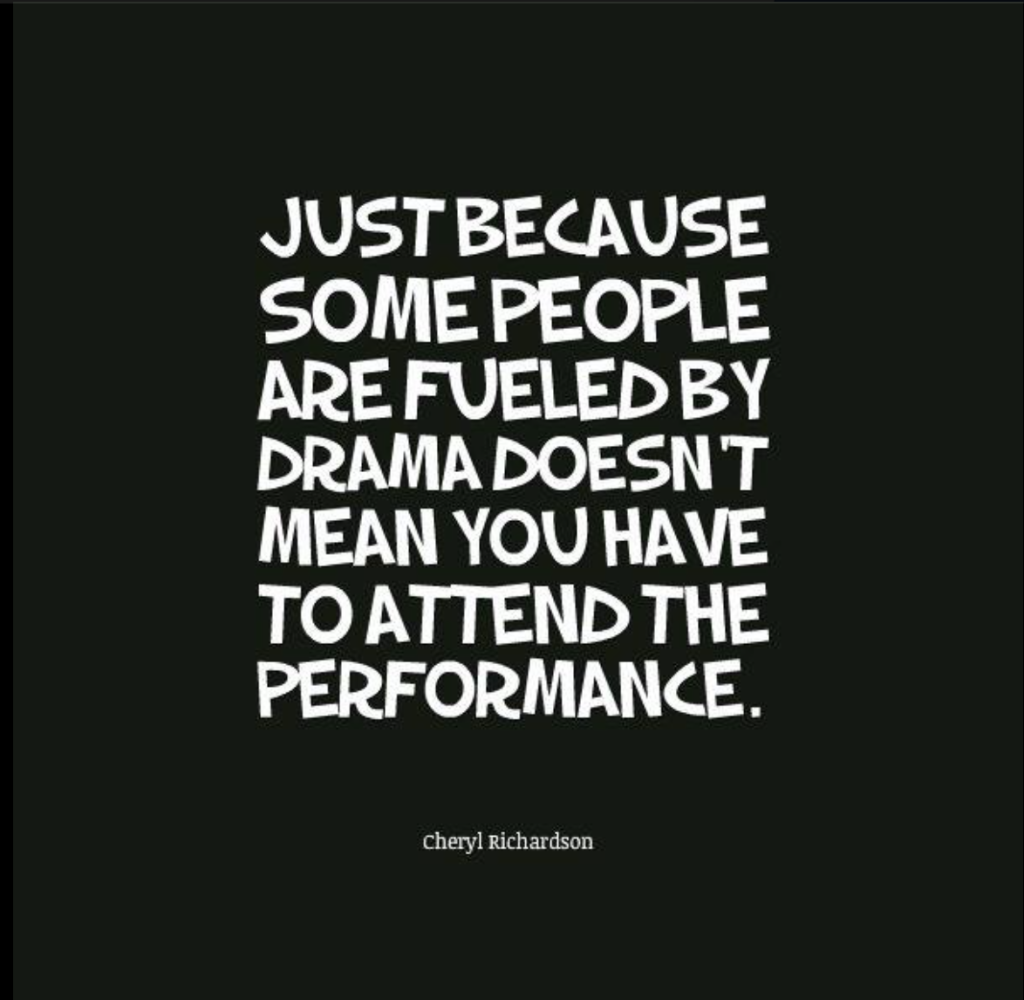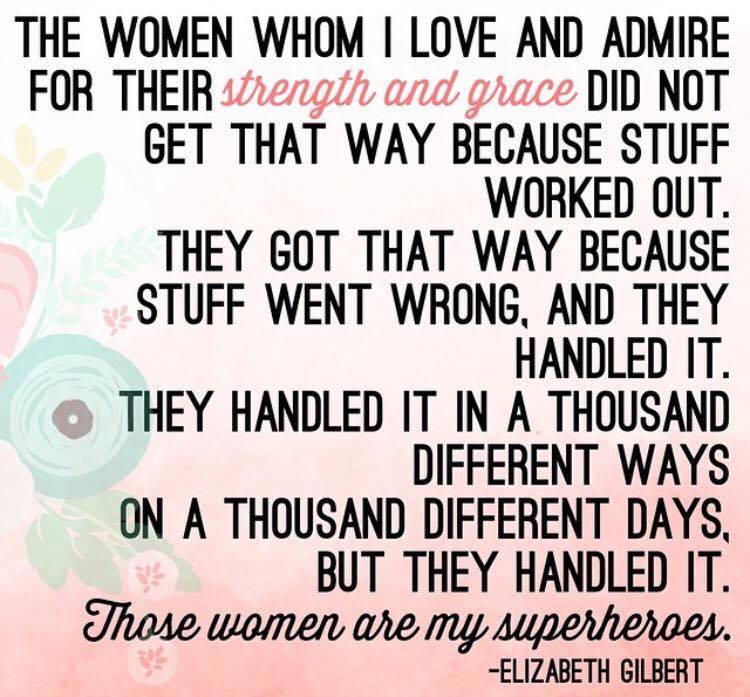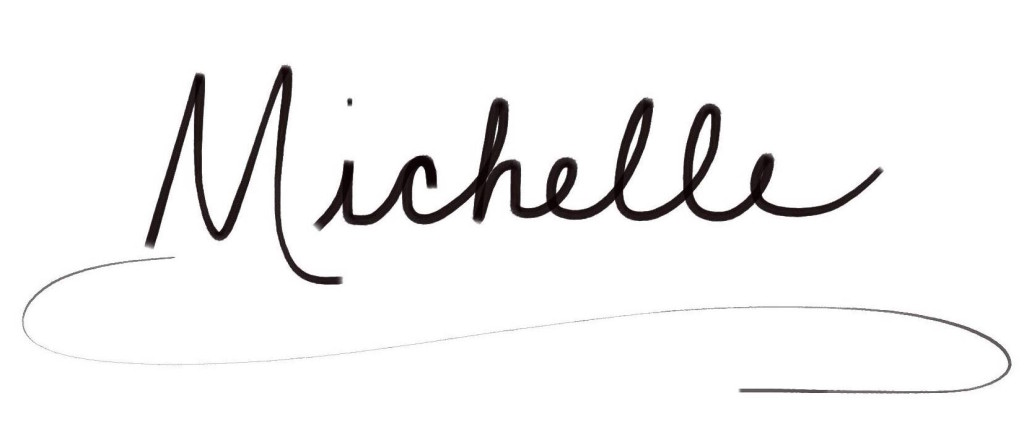Oh, The Drama!
A friend put this on her Facebook page:
I think Cheryl Richardson hit the nail on the head. While we might KNOW it’s not our drama, the most challenging part of refraining, or resisting the drama, lays in identifying boundaries. That’s right…sometimes we get confused about which luggage is yours, which is mine, and we end up carrying other people’s bags. I’m no lobby boy (click to Tweet).
My theory is this –
In the vast expanse of most of our brains, there is a tiny corner of doubt. I rather appreciate that place, because it sometimes stops me before I speak, keeps me from making rash decisions and generally keeps me out of trouble. You probably have that corner, too. It’s a corner of doubt that can also be self-critical, keep us from pulling the trigger on our dreams and often gives some people a foot up as a stepping stone to pull us into their drama.
Politicians and marketers know about the using the corner as a stepping stone.
So do drama queens.
Now, not everyone has a “doubt corner.” Most of those who don’t are politicians and socio-paths. It is with this knowledge that I’m grateful for my occasional doubt. (click to Tweet)
Any ol’ hou….sometimes we dive into other people’s drama under the guise of wanting to help, to be supportive, or to prove we “care.” There’s a plethora of reasons, including that doubt – we just don’t know what’s ours to do and what’s theirs to do. Sometimes the border can be almost invisible and it feels like the illegal immigration of our minds. One day you wake up amidst the drama and say, “Hey, this is really none of my business!” Now, the work of extracting yourself will begin. It’s best to have an early detection system where you can walk the other way, walk away from the drama, before you’re in their play.
If you can’t deflect the drama, there’s a tool for dealing with it and putting it back into the hands of the willing owner. I’ve found acknowledging and validating to be a very useful tool, so the person feels heard, but you’re not helping or participating. Here’s how you do it:
- Recognize ahead of time their drama is their business. You are not going to try to “help” or join them. It’s their path, their issue to learn from and their business how big of a deal they want to make it in their OWN lives. This is the most important step because this keeps their “stuff” in their lives.
- Acknowledge their feelings. Example: “It sounds like you’re really angry at your mother for calling you “crazy and irresponsible.” Stick to the facts by restating them.
- Now, validate their feelings with, “Most people would feel that way.” Key here – most people. Don’t make it personal by saying YOU’D feel that way, too. Don’t step into the pile. “Most people”…got it? Good!
- You can conclude your conversation on the topic by sharing some words of confidence to send them on their way. “You’re a very smart person, I know you’ll find a solution to this.” “You’ve got this, I have a great deal of confidence you already know the answer.”
Skilled people might ask a couple open-ended questions before going to step #4 – but this is not for the faint hearted. It’s one of the easiest ways to get a role in the drama queen’s play. So, if you want to be SURE not to end up on stage…proceed without asking questions, to the #4 wrap up. Here are the MOST important points
Now, in my book of doing the work, you’ve done your part to support this person. Don’t wade in any further. Excuse yourself and go about your business. This works great with kids, too. Trust me on this…It’s supportive and empowering to let them figure out a solution on their own.
If you’re wondering if you’re a drama addict and part of the problem, you probably are. If people avoid your conversations, don’t blame them, examine your own topics of conversation and behaviour. If you’re compelled to help a drama queen, if you’re dying to “fix it,” you’ve got other issues. We tend to repeat behaviours that give us a pay-off. You might start by asking yourself, “What’s the pay-off for me in getting involved?”
Now, back to that little corner of doubt – know that it’s there. Protect it. It serves most of us well, but can be misused by others. Learning where boundaries lie is difficult because they apply to so many areas and contexts of our lives. Certainly, we don’t want to NOT help people who are truly asking and need it. Learning the difference is a valuable skill because you never signed up to be a supporting cast member of the crazy play.
Exiting Stage Left,
Michelle Andres is a writer and artist. She is a trained personal and executive coach, has a BA in Psychology and an MS in Organization Development. She’s an advocate for all of us cultivating our own, “Well-Lived Lives.”
is a trained personal and executive coach, has a BA in Psychology and an MS in Organization Development. She’s an advocate for all of us cultivating our own, “Well-Lived Lives.”
Find her on Facebook and Twitter and Instagram
Join the Tribe for Updates Over By the Left Sidebar




12 Comments
February 13, 2016 at 10:23 pm
Thank you for the reminder to keep a close eye on boundaries!
My quick check for finding out if someone is only in the conversation for the drama is saying, “I have every faith in your ability to take care of this.” If they get angry, they’re really not interested in changing anything, they just want the attention and continued benefits of staying in their current situation.
February 13, 2016 at 10:32 pm
Great response, Deb. Thank you for sharing!
February 14, 2016 at 8:25 am
this is seredipity, i think, as boundaries are an issue I am trying to deal with just now.
Wondering if I can be a drama queen sometimes too!
It`s all moving forward, thank you for making more clarity for me.
tess
February 16, 2016 at 5:45 pm
Teresa, I’m glad it was timely and helpful. Good for you on the self-check! 🙂
February 16, 2016 at 12:07 pm
Thanks for reminding me about boundaries. They are so important for my own sanity! I tend to keep a special room for the drama queens in my life. I only open the door when I’m in my corner and ready. 🙂
February 16, 2016 at 5:45 pm
I think that you can see them coming, is half the “battle.” Be prepared! lol!
February 16, 2016 at 4:53 pm
Interesting topic. I have had some drama in my life this week and, upon reflection, I did not need to get involved. Good tips.
February 16, 2016 at 5:44 pm
Thanks, Amy. Well, there’s always next time…and believe me, there will be a next time! 😉 Wishing you all the best on the next one!
February 17, 2016 at 1:33 am
Me thinks you’ve had a monster drama queen invading your life of late ;-). Love the Cheryl Richardson quote. I had to laugh, Michelle, that this point of longish post was basically, “acknowledge and ignore”. I so appreciate irony, don’t you?
February 17, 2016 at 2:30 am
Actually Nanette, no drama here. I had been too busy to write my usual post ahead of time and saw the Facebook graphic which prompted me. I’ve learned to handle the drama queens. I’m not sure if it is “ignore,” but it certainly is “don’t pick it up.” I’ve carried the drama queen’s luggage before…no more…I’m retired! 🙂
February 17, 2016 at 2:38 pm
I really needed that reminder today. There has been a ton of drama in my life this year and most of it, thankfully, does not involve me. Yet, I find myself being sucked in at times thinking I can help. YOU, my sweet, have just confirmed that I need to resist that temptation and move on down the road! Thank you!
February 17, 2016 at 4:31 pm
Self awareness can be your best asset, Debbie! All the best with your new, drama-free (mostly) life! XOXO!